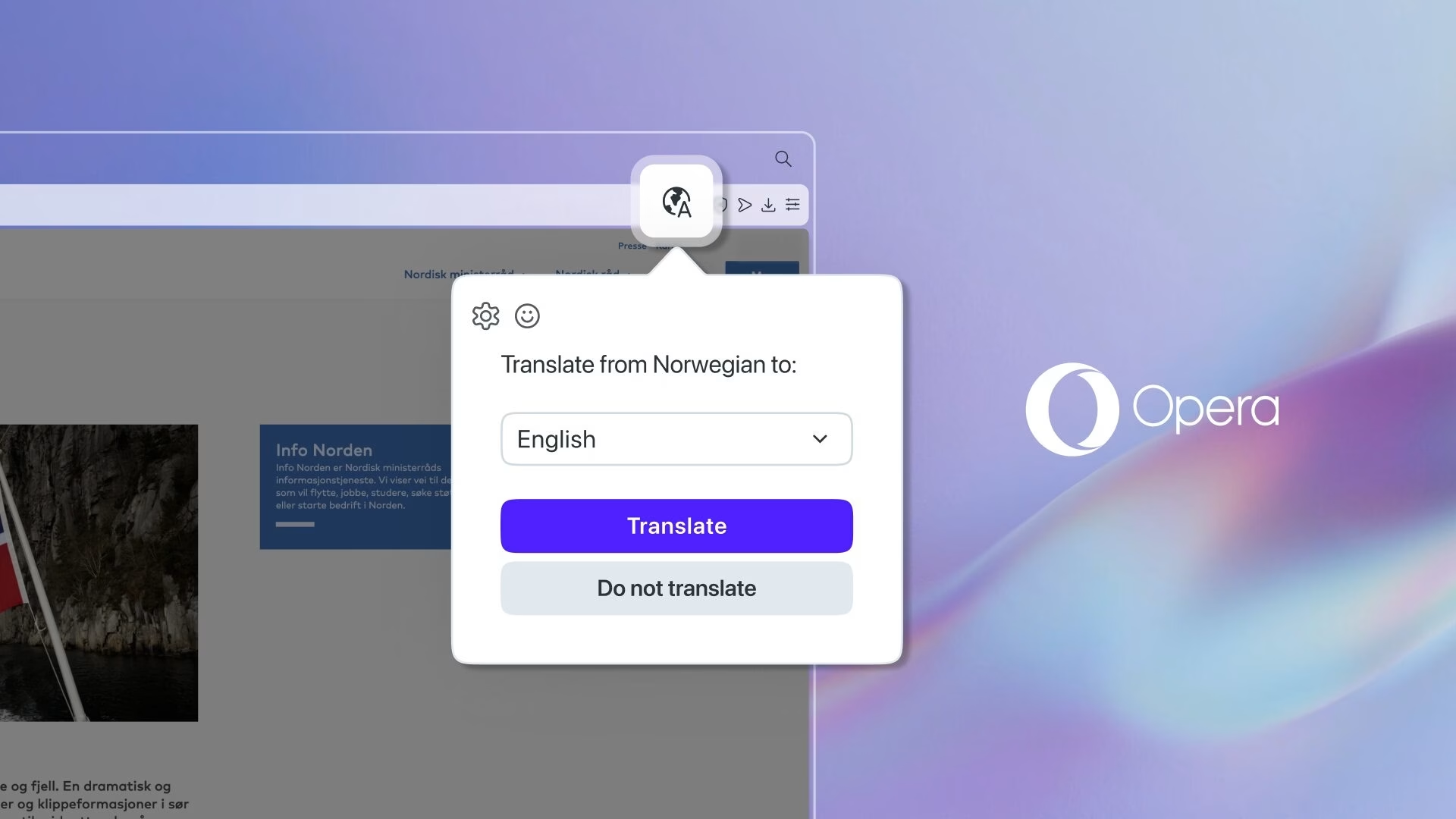Opera's Latest Update: A Deep Dive into Enhanced Translation, Multitasking, and Personalization
It's always interesting to see how browser companies try to carve out their niche in a market dominated by giants. For years, Opera has been that plucky underdog, consistently pushing boundaries with unique features rather than just chasing market share. Their latest major update for desktop browsers, Opera One and Opera GX, really underscores this strategy, bringing a suite of new tools that focus heavily on user experience, privacy, and customization. We're talking built-in translation, souped-up multitasking, and some truly wild personalization options for the gaming crowd.
Opera Translate: Breaking Down Language Barriers, Privately
This isn't just another translation feature, though. Opera's approach is distinctly privacy-focused. Unlike many browser translation tools that might send your data off to external servers, Opera Translate keeps all processing in-house. It runs through servers based in Europe, which is a pretty big deal for those of us concerned about data handling practices. Especially with the increasing scrutiny on how our online activities are tracked, this commitment to privacy really stands out. The tool, powered by AI-enhanced technology from Lingvanex, supports over 40 languages. That's a lot of ground covered! As Tomasz Stawarz, Director of Product at Opera, aptly put it, "The internet connects the world, but language can still be a barrier to exploring its full potential. With the introduction of Opera Translate, we're giving our users access to content and ideas from across the globe without compromising their privacy." It's a thoughtful integration, removing a common hurdle while maintaining user control over personal data.
Elevating Multitasking in Opera One
Opera GX: A New Realm of Personalization for Gamers
This feature, a collaboration with Sweezy Cursors, brings over 30 cursor packs – including animated ones – directly to the GX Store. No more fiddling with system settings or risking dodgy third-party extensions. Opera made a point of emphasizing security here, stating that all cursor rendering happens locally within the browser engine. That's smart. It ensures privacy and performance, avoiding the risks often associated with external cursor customization tools that might try to access page content. And they're not stopping there; plans for branded cursor packs based on popular game IPs are in the pipeline. How cool is that?
Opera's Strategic Play in a Crowded Browser Market
Opera's consistent focus on built-in tools and deep user customization isn't just a random assortment of features; it's a deliberate, well-thought-out strategy to differentiate itself from the behemoths like Chrome, Microsoft Edge, and Firefox. While these larger players dominate market share, Opera has shrewdly found a niche with users who crave a browser that feels truly personal and minimizes reliance on third-party add-ons.
Compared to Chrome, which often requires extensions for even basic customization, Opera provides a more integrated experience right out of the box. Firefox, while also user-focused, tends to be more barebones initially. Opera, on the other hand, keeps adding quality-of-life updates with a tighter integration between features. And let's not forget that emphasis on European data privacy standards, which, as I mentioned earlier, is becoming an increasingly clear competitive advantage, particularly with features like their in-house translation. It's a smart play, appealing to a segment of users who prioritize control and a tailored experience over sheer market dominance.
This latest update solidifies Opera's position as a browser for those who want more than just a window to the internet. They want a personalized, efficient, and private digital workspace. If you haven't given Opera One or Opera GX a spin lately, now might be the perfect time. You can grab the latest version and experience these new features for yourself.
